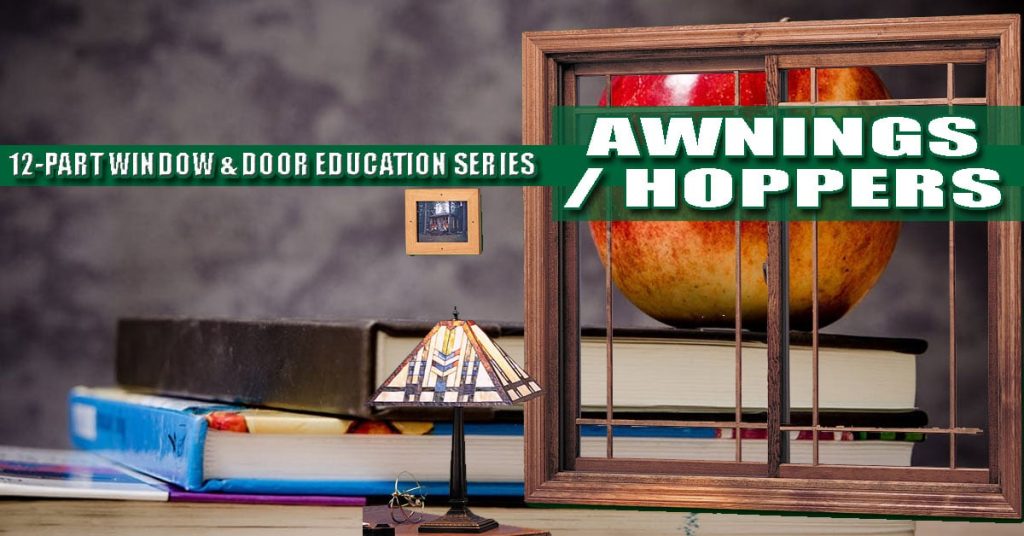

The first few posts in our Renewal by Andersen of Long Island series have focused on one specific home improvement product – like patio doors and casement windows. This week we will compare two similar replacement window styles – hopper and awning windows.
While both replacement window styles are popular as accent windows and in tight spaces, there are a few important differences between them. Let’s start with the construction. Awning replacement windows are hinged at the top, and the sash swings outward. Hoppers are hinged at the bottom, allowing the sash to pull inward. You often see both styles installed high on a wall in narrow hallways, basements and small bathrooms where extra ventilation is important to maintain healthy air quality.
Both replacement window styles are typically built wider than they are tall, although you might see square hoppers and awnings. It is possible to build either style in a taller version. In fact, you’ll find a variety of sizes, including large, “full-sized” in either style in some neighborhoods on Long Island. Like all of our replacement windows, customization allows homeowners to design the size and the shape of home windows that best serve their needs.
Clearance requirements are a differentiating factor for some homeowners selecting replacement windows. Since awning windows open outward, making sure you have sufficient clearance around the exterior of your home is critical when you want to open the window fully. If the open window would interfere with traffic patterns or landscaping choices, another style may be preferable. Also, some covenanted communities have specific regulations that restrict window styles that swing out on street-facing sides of a home. Check local zoning and HOA rules before you decide.
Clearance is also a consideration for homeowners thinking about installing hopper windows. Hoppers swing into the room. When installed near the middle of the wall, or using a series of smaller hoppers mulled under a picture window for additional air circulation, you may find furniture placement is limited, as compared to a sliding replacement window or double-hung style that doesn’t take up any floor space when open.
Another key difference between the two styles is that the awning design creates a mini-umbrella that channels rain and sprinkler water away from the interior of your home. You can open the window to enjoy the fresh smell of a gentle rain falling without worrying about water dripping – or pouring – inside your home. The lower hinge and swing-in styling of a hopper window means that any moisture falling from the sky is likely to end up inside. Homeowners who use an automated sprinkler system in warm weather and like to use outdoor air to cool their homes during moderate temperatures will want to make sure they consider replacement window styles and watering schedules carefully before choosing any style.
These two replacement window options look splendid with or without grilles. Every window unit comes with a standard insect screen, or you can upgrade to TruScene screens. And, with Energy Star certified glass choices and Fibrex frames, you can be confident that precision-crafted awning and hopper replacement windows will enhance the energy-efficiency in your home and make it easier to control indoor climate. Do you have more questions about these styles or any of our home improvement products. It’s easy to get answers. Just fill in the short form on this page or give us a call at (866) 609-5033 to schedule an in-home consultation with a window design consultant.

Learn Everything You Need to Know BEFORE Buying Replacement Windows